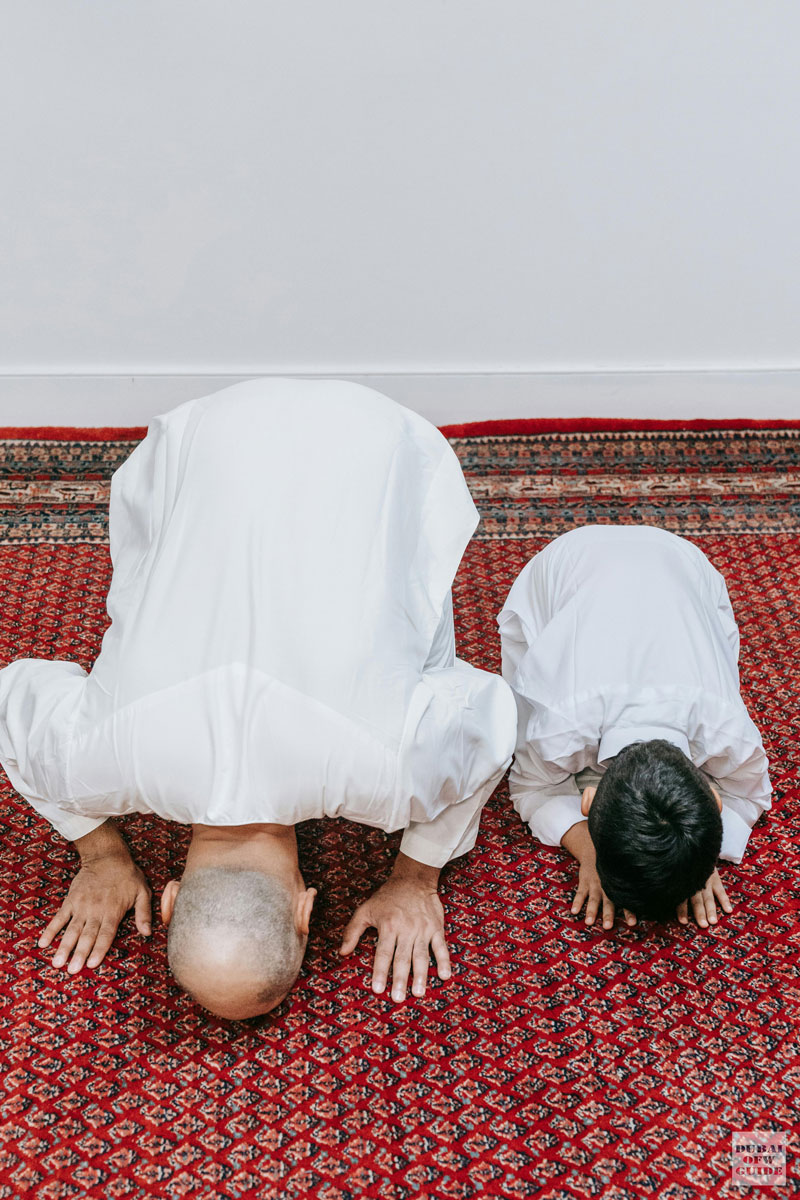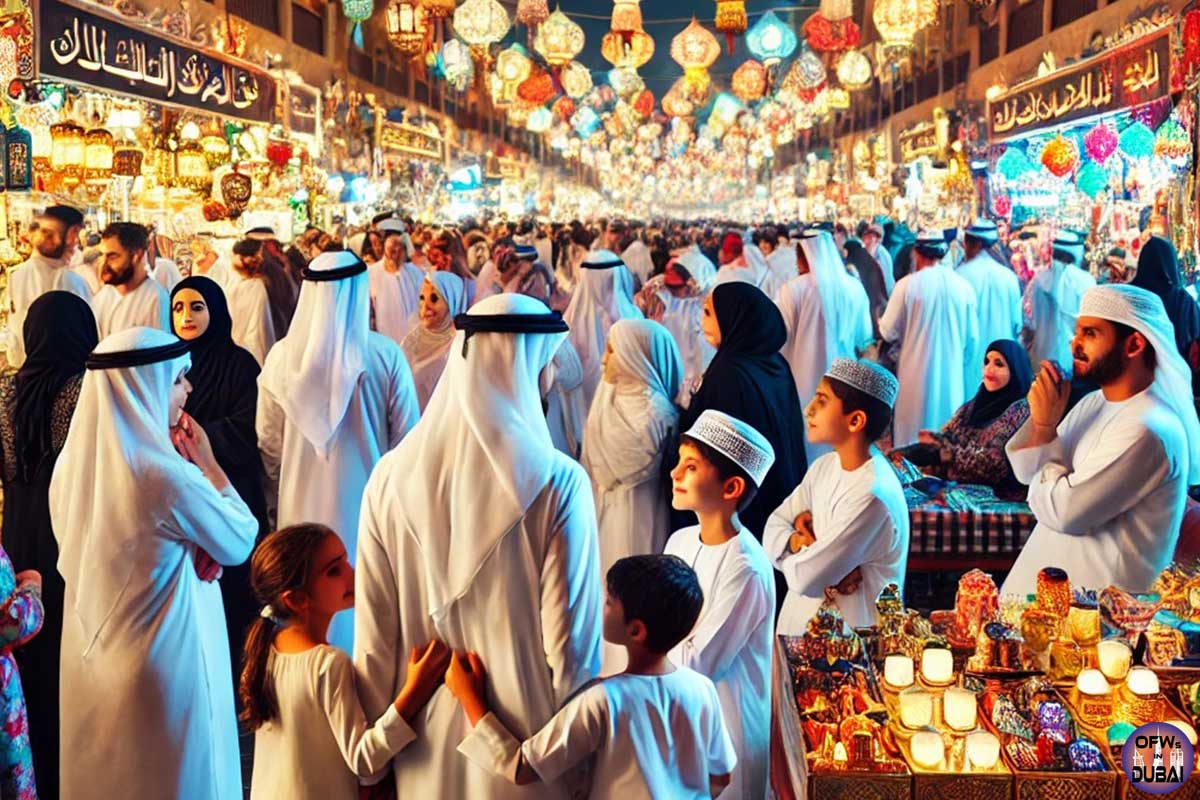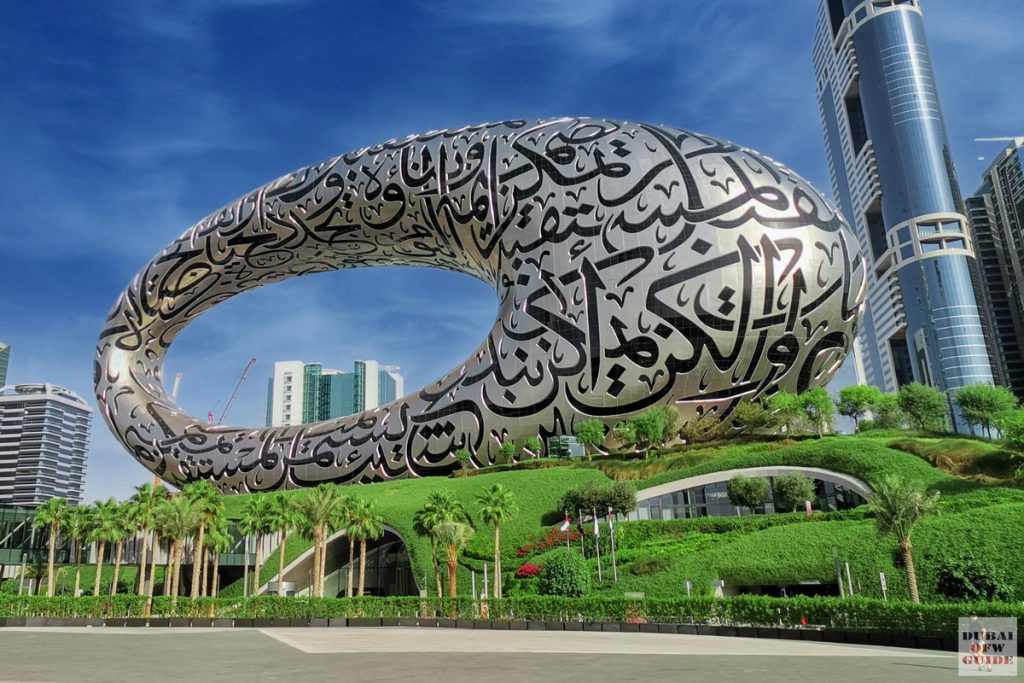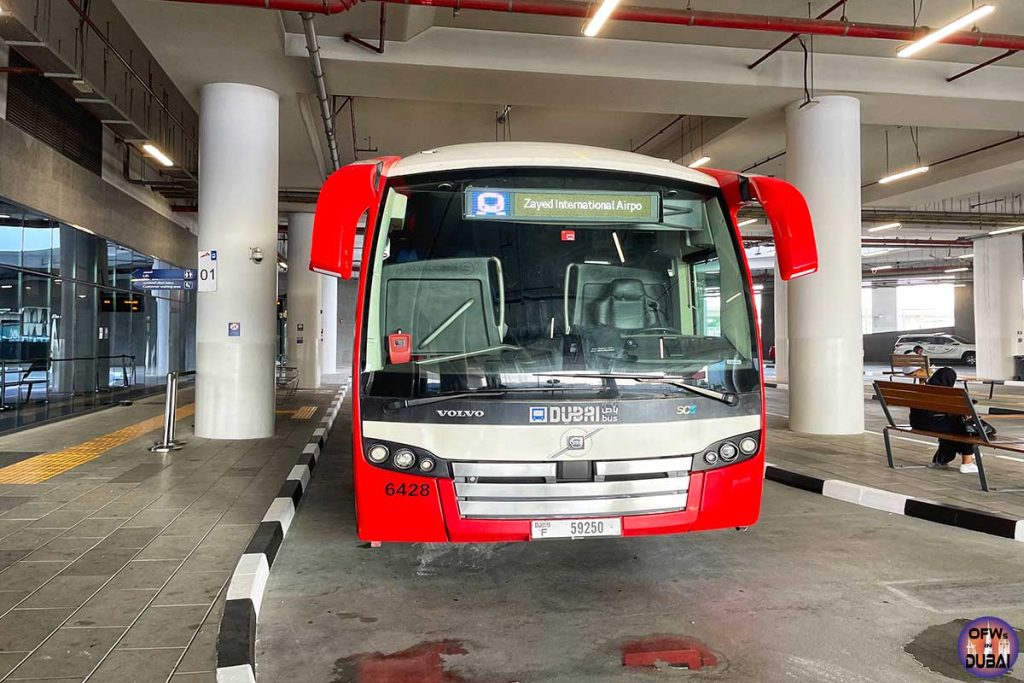Ramadan is a sacred month observed by Muslims worldwide, and in Dubai, it is deeply respected. If you’re an OFW, expat, or visitor during this time, it’s essential to be mindful of cultural norms and etiquette. Here’s a quick guide to help you navigate Ramadan in Dubai with respect and understanding.

Key Ramadan Etiquette to Follow
1. Eating and Drinking in Public
During Ramadan, it is illegal to eat, drink, or smoke in public from sunrise to sunset. This applies to everyone, including non-Muslims. However, most restaurants—if not all—are now open during the day, and you can eat and drink inside the restaurant premises. OFWs working in offices or outdoor environments should plan their meals accordingly.
Related: Cost of Living in Dubai for OFWs: A Comprehensive Guide
2. Dressing Modestly
Modest attire is always appreciated in Dubai, but during Ramadan, it’s especially important to dress conservatively. Avoid wearing revealing clothes, and opt for outfits that cover your shoulders and knees. For OFWs working in customer-facing roles, dressing respectfully is crucial to maintaining professionalism.
3. Be Mindful of Music and Loud Behavior
Playing loud music, dancing, or engaging in overly boisterous activities in public is discouraged during Ramadan. Keep the volume low in your car and at home to respect those observing the fast. Many OFWs enjoy social gatherings, so it’s best to keep celebrations quieter during this time.

Related: UAE Public Holidays 2025: Plan Your Year Ahead
4. Respect Prayer Times
Muslims pray five times a day, with additional prayers during Ramadan. Be mindful of these times, especially if you are in a public place, and avoid scheduling meetings during Iftar (the breaking of the fast) as many people will be occupied. OFWs working in offices should consider adjusting work schedules to accommodate colleagues who are fasting.
5. Be Courteous When Interacting with Fasting Individuals
Fasting from dawn to sunset can be physically demanding. Be patient with colleagues or workers who may feel fatigued during the day. Avoid asking them if they are hungry or offering food. OFWs in service industries should be extra considerate, as many customers and co-workers will be fasting.
6. Participate in the Spirit of Ramadan
Ramadan is a time of charity, reflection, and kindness. You can show respect by donating to charity, volunteering, or even joining in an Iftar meal with Muslim friends or colleagues. Many OFWs also take this opportunity to send support to their families back home through remittances or charitable acts.
Also Read: How to Apply for an Overseas Employment Certificate (OEC) for Filipinos in Dubai, UAE
7. Understanding Iftar and Suhoor
Iftar is the meal that breaks the fast at sunset, and Suhoor is the pre-dawn meal before fasting begins. Many restaurants offer special Iftar buffets, and you’re welcome to join, but be sure to book in advance as they tend to fill up quickly. OFWs working in hospitality or food service should prepare for a busy period around Iftar time.

8. Alcohol Consumption and Public Behavior
While alcohol is still available in licensed venues, it is usually served discreetly. Avoid excessive drinking, and always be respectful in public spaces. OFWs who enjoy socializing should be mindful of these restrictions to avoid any issues.
9. Business Hours and Public Services
Many businesses, including government offices and malls, adjust their hours during Ramadan. Work hours are often reduced, and many establishments open later in the day and stay open past midnight. OFWs working in different industries should check their schedules, as working hours may shift.
Also Read: The Fastest Way to Travel from Dubai to Abu Dhabi by Bus
10. Eid al-Fitr Celebrations
Ramadan ends with Eid al-Fitr, a major Islamic celebration. It’s a time of joy, feasting, and giving. If you’re in Dubai, expect grand festivities, sales, and public celebrations. Many OFWs use this time to celebrate with their friends, take a break from work, or send gifts to their families back home.
By being respectful and understanding of Ramadan traditions, you can ensure a smooth and enriching experience in Dubai during this holy month. Whether you’re observing the fast or simply supporting those who are, embracing the spirit of Ramadan can be a rewarding cultural experience for OFWs and expats alike.











